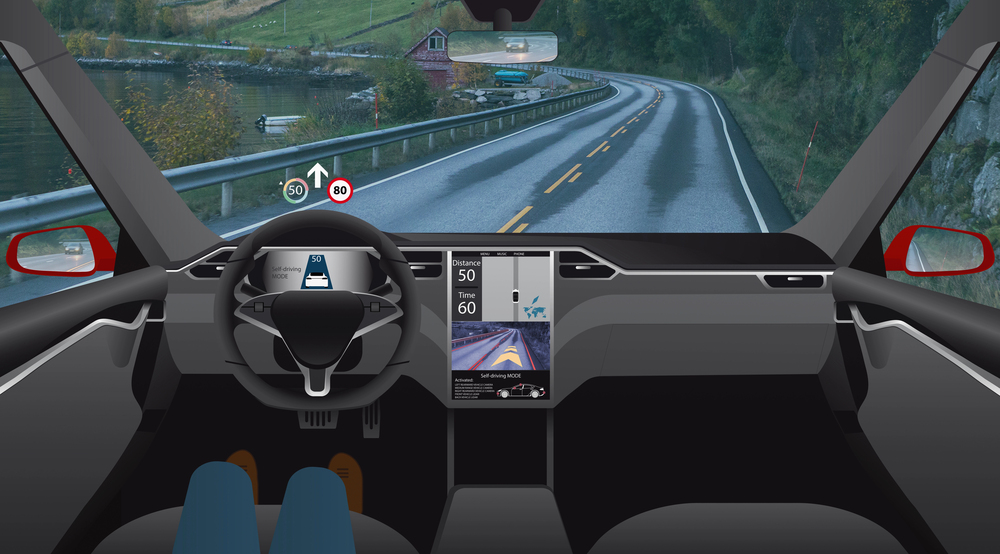The pros and cons of driverless cars
Valerie Raskovic

As car technology continues to evolve at an unprecedented pace, driverless cars, also known as autonomous vehicles (AVs), have emerged as a prominent symbol of vehicle innovation. As an emerging technology, AVs are a recent addition to mainstream society, but they continue to permeate into other sectors and industries that value automation and efficiency. AVs are not that different from conventional cars. What makes them different is a slew of advanced sensors, cameras and lidar radars coupled with advanced street mapping and artificial intelligence. This technology is set to completely revolutionize the way we commute. However, like any groundbreaking technology, driverless cars come with their own set of advantages and disadvantages. Below, we explore the pros and cons of this emerging technology.
Pros of Driverless Cars
- Increased Safety
One of the most significant advantages of driverless cars and one that has been touted by electric car manufacturers and lawmakers has always been safety. A large-scale adoption of autonomous vehicles has the potential to reduce up to 98% of all vehicle accidents. According to the U.S. General Services Administration Office of Motor Vehicle Management, roughly 98% of all car crashes are caused by human error. Since autonomous vehicles are designed to adhere to traffic rules, maintain safe distances, and react faster to unexpected situations than human drivers, they effectively eliminate the human error risk from practically any commute. This change is set to a substantial decrease in road accidents, saving lives and reducing injuries.
- Reduced Traffic Congestion
One of the other benefits of AVs is that they have the ability to communicate with each other, instantly optimizing routes and traffic flows. By eliminating human behaviors like sudden lane changes, not indicating when the vehicle is turning or changing lanes, panic braking, traveling in the wrong lane or aggressive driving, driverless cars could help ease traffic congestion in urban areas, making commutes more efficient and less stressful.
- Accessibility
For those of us that are unable to drive due to various medical ailments or the elderly, driverless technology can open up a new world of freedom and independence. With autonomous vehicles people who were once limited by their disabilities can enjoy greater mobility and participate more fully in society.
- Environmental Benefits
Autonomous vehicles are essentially smart vehicles, assessing more efficient routes and driving patterns so that they can save energy and reduce carbon emissions. The majority of today’s advanced electric vehicles (EVs) are celebrated for their lack of exhaust emissions, which means they don’t contribute to air pollution in the way traditional gas-powered cars do.
- Increased Productivity
With driverless cars, passengers can utilize their travel time more effectively. Instead of focusing on the road, they can choose to work, relax, or engage in other activities, turning commuting time into productive or leisure time.
Cons of Driverless Cars
- High Cost
All the additional technology required for autonomous driving does come at a steep price. All the sensors, cameras, and computing power needed to operate these vehicles are expensive, making them less accessible to the average consumer. Additionally, the cost of maintaining and repairing these complex systems can be high. In addition, the mechanic shops specializing in these technologies are few and far between. However, it is only natural to assume that as the technology becomes more widespread, the cost and accessibility factors should begin to decrease.
- Security and Privacy Concerns
What a lot of people may not realize is that companies producing autonomous vehicles are heavily involved in data collection. In fact, according to a Bloomberg report, Tesla has amassed an incredible 1.3 billion miles in data thanks to its Autopilot-equipped vehicles. This data contains travel times, distances, traffic patterns and geolocations, amongst users’ personal information.
By purchasing a vehicle equipped with this cutting-edge driverless tech, consumers are entrusting their information, including their locations, lifestyle habits and identifying information, to the vehicle manufacturer. Consumers have voiced some very serious cybersecurity and privacy concerns. The potential for hacking, data breaches, or unauthorized access to personal information is a significant drawback that may deter consumers from buying AVs. Additionally, the constant monitoring required for driverless cars may infringe on individual privacy.
- Job Displacement
The widespread adoption of driverless cars could lead to job losses in sectors like transportation and delivery services. This could affect everyone from Uber drivers to truck drivers, taxi drivers, and others. Essentially everyone who may rely on driving for their livelihood might find themselves out of work as autonomous vehicles become more prevalent. In fact, both of the largest rideshare companies, Uber and Lyft have already made plans to convert to autonomous vehicle technology once it becomes more accessible. Tesla CEO Elon Musk also announced that Tesla will venture into the ride-shares business model by allowing Tesla owners to rent out the vehicles when not in use to autonomously ferry paying riders.
- Ethical Dilemmas and Legal Challenges
Driverless cars face ethical challenges, particularly in situations where they must make split-second decisions. For example, in an unavoidable accident scenario, how should an autonomous vehicle choose between two potentially harmful outcomes? The programming of these ethical decisions remains an ongoing issue.
In addition, the introduction of driverless cars poses significant challenges for regulators and policymakers. Questions about liability in the event of an accident, the establishment of safety standards, and the integration of autonomous vehicles with traditional cars are complex issues that require careful consideration and development of new legal frameworks.
- Environmental Impact
With the momentum of legislative and community-driven reforms, it's becoming increasingly likely that more manufacturers will prioritize electric vehicles. Many are expected to equip these vehicles with the latest and greatest autonomous driving technology. We are already seeing a trend of converting previously gas-powered models into fully electric vehicles. Even the iconic Dodge Charger nameplate has been slapped on a fully electric car for the 2025 model year lineup.
The overall environmental impact of EVs is still a topic of debate. The production of large lithium-ion batteries, essential for these vehicles, involves significant environmental challenges. The mining of materials needed for these batteries can be harmful, and the recycling of the metals used in them poses difficulties, raising concerns about the long-term environmental sustainability of EVs.
Driverless car technology represents a significant leap forward in transportation technology, offering numerous potential benefits as well as significant drawbacks. As this technology continues to develop, society must weigh the pros and cons carefully to ensure that the adoption of driverless cars leads to positive outcomes for all.
Read more articles

